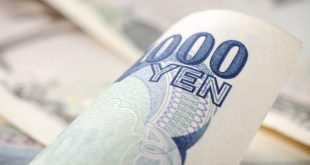Oil prices rose on Monday, rebounding from recent losses, on reports that OPEC+ could adjust plans to raise oil production if large consuming countries release crude from their reserves or if the coronavirus pandemic dampens demand. This marks the latest development in the market after weeks long tug-of-war game.
Brent crude futures rose 81 cents, or 1%, to settle at $79.70 a barrel. WTI crude futures rose 81 cents, or 1%, to settle at $76.75 a barrel.
Prices of the Brent and U.S. West Texas Intermediate (WTI) crude benchmarks fell more than $1 in early trading, hitting their lowest levels since 1 October.
Earlier on Monday, OPEC+ officials warned that they are likely to respond and eventually react to plans by the largest oil consumers in the world to release oil from their strategic stockpiles, setting up a fresh fight for control of the global energy market.
Recent surges of fuel prices pushed US President to a plan to release reserves from the Strategic Petroleum Reserve on Tuesday in coordinated effort with China, India, Japan and South Korea. The move has been through weeks in planning and has been designed to ease this year’s rise in fuel prices for drivers and businesses.
Latest news has indicated that India may join this coordinated strategic oil reserves release by major oil consumers led by the United States to reduce oil prices.
The world’s third-largest oil importer, India, plans to release crude oil from its strategic petroleum reserves in a coordinated effort of consuming nations to bring crude oil prices down according to government sources’ statements on Monday.
The United States has asked the top Asian consumers India, Japan, China, and South Korea to release crude from their respective strategic stockpiles after the OPEC+ group has been ignoring for months calls from consumers, most vocal from the US, to increase the monthly production by more than the 400,000 bpd decided in July.
At the end of last week, China was already preparing to release crude oil from its strategic reserve according to statements by China’s National Food and Strategic Reserves Administration.
“We are carrying out the work of releasing crude oil reserves. And for any details related to the releasing, we will put out a statement on our website,” a spokeswoman for the Chinese administration told Reuters.
Japan is also considering a release from crude reserves, together with the United States and other major consumers, to reduce prices, Japanese Prime Minister Fumio Kishida said on Saturday, as quoted by Kyodo News agency.
If Japan goes ahead with such a plan, it would be the first time the country has tapped into its oil reserves to reduce prices. Japan has previously released crude from reserves, but only in times of supply shortages, such as during the Gulf War in 1991 or in the wake of the Fukushima disaster when it closed all its nuclear plants. Currently, Japan’s Oil Stockpiling Law allows for reserve releases only in such cases, nor for lowering oil prices.
Officials, however, say that stockpiles that exceed Japan’s reserve targets could be released without revising the law, Kyodo News notes.
Market talk of a coordinated reserves release has dampened sentiment and dragged oil prices lower in recent days, although Goldman Sachs, for example, says that the market has already priced in such a global effort.
Oil extended declines after four weeks of losses while importers try to tame a surge in energy prices that has triggered a jump in inflation which puts oil prices under extra pressure. Brent settled 2.6% lower and at one stage, traded to its lowest levels since early October. This weakness has seen both Brent and WTI break below their 50-day moving averages. This downward pressure has continued in early morning trading today.
The catalyst for the move appears to be growing expectations of a release from reserves as Biden asked China’s Xi for China to tap its oil reserves
Biden requested that the Federal Trade Commission look into potential anti-consumer behaviour by oil and gas companies. It is this growing discontent amongst key consuming nations (particularly the US), which appears to be making market participants nervous, that we could see some form of action to bring oil prices lower. While a release from the SPR would only provide some short-term relief to the market, that may be all that is necessary, given the expectation that the global oil market could return to surplus as early as the first quarter of 2022.
On the other hand, Russia has denied any shortage of oil in the global market and warned of accumulating surplus from early next year, adding to the chorus of other OPEC+ members to push back against calls from the US to raise output faster.
“Inventories have stopped drawing, which shows there is no deficit at the moment,” Russia’s Deputy Energy Minister Pavel Sorokin told Bloomberg TV last Monday in an interview on the sidelines of the Adipec oil and gas conference.
 Noor Trends News, Technical Analysis, Educational Tools and Recommendations
Noor Trends News, Technical Analysis, Educational Tools and Recommendations





